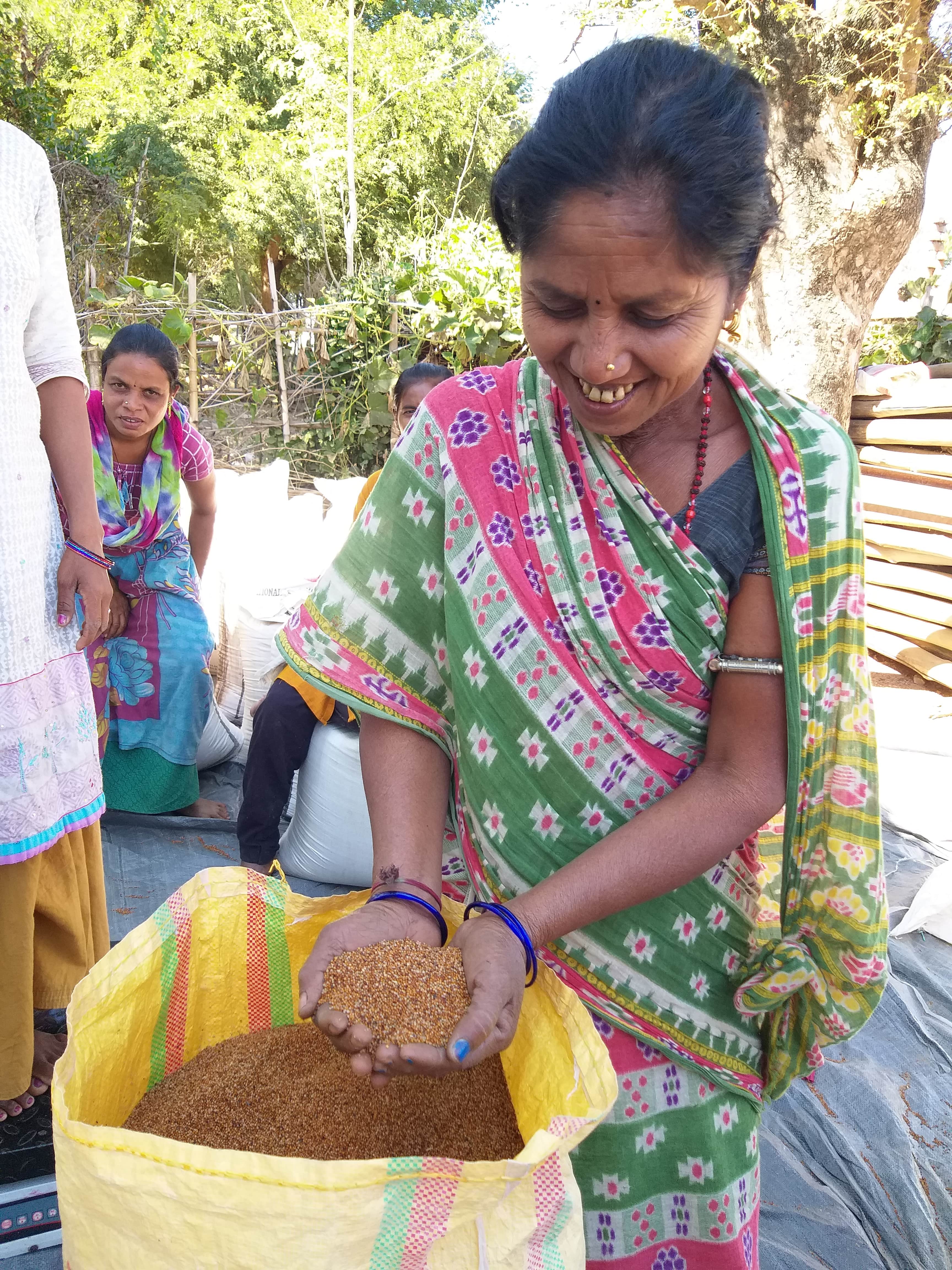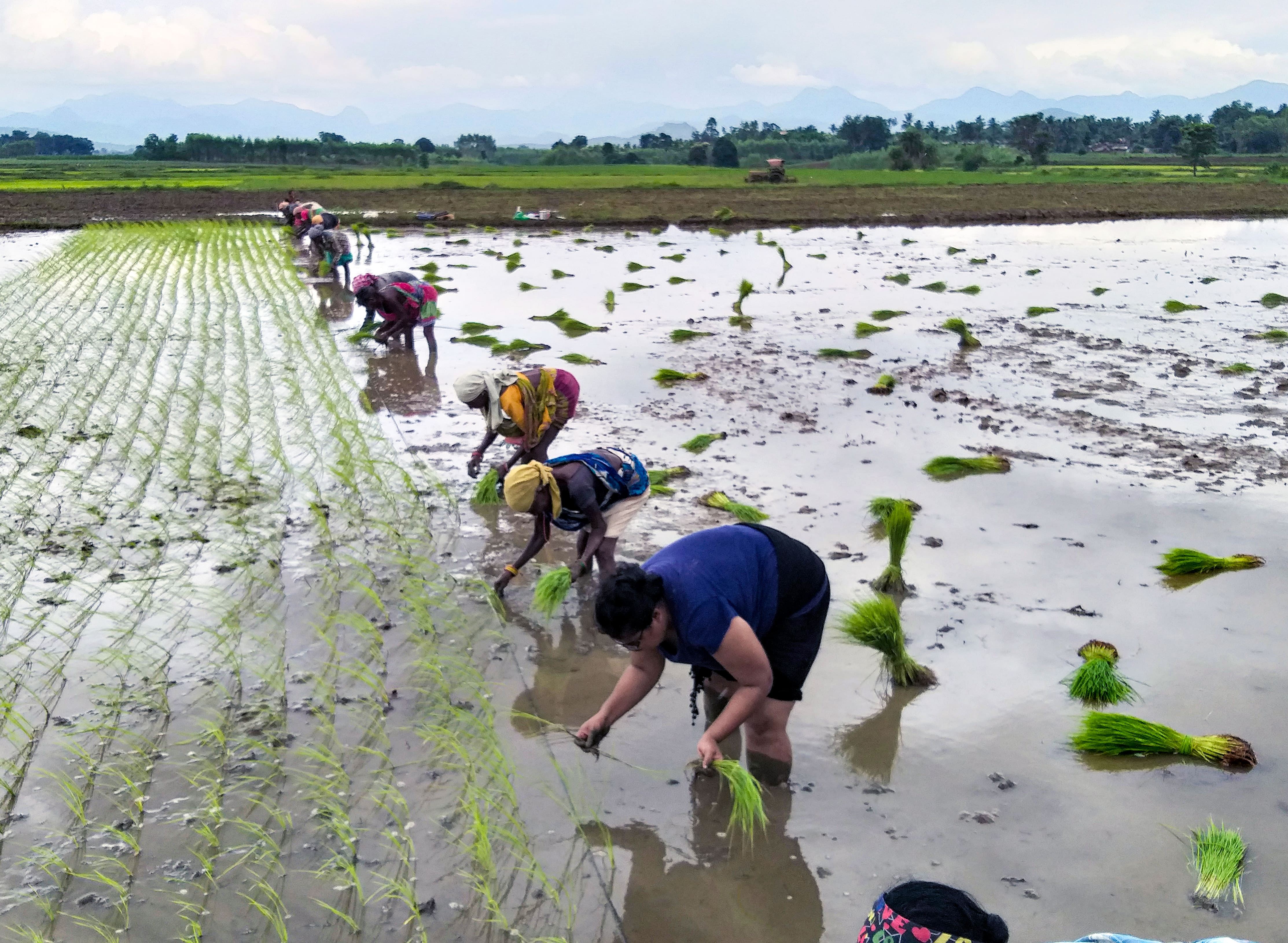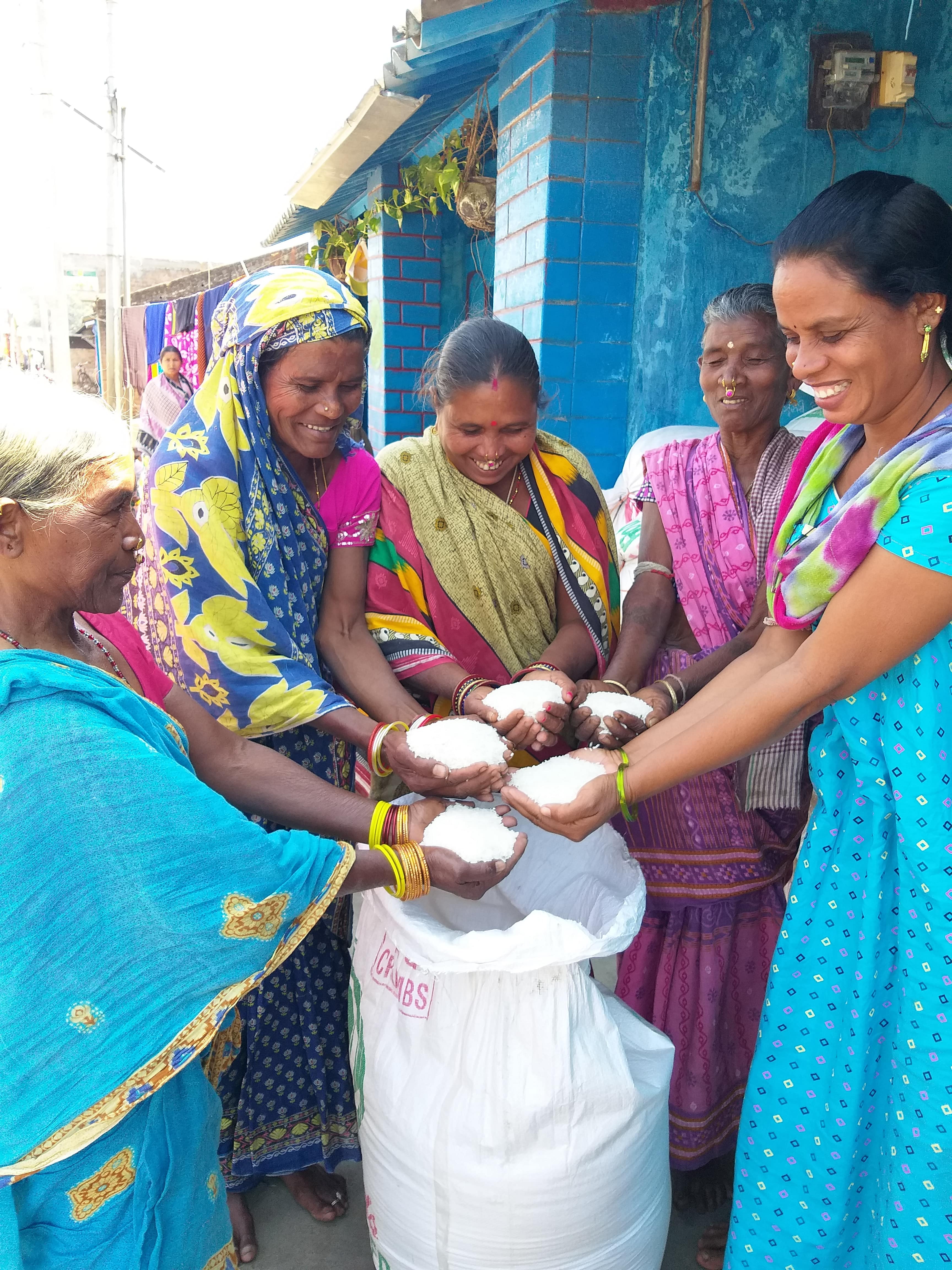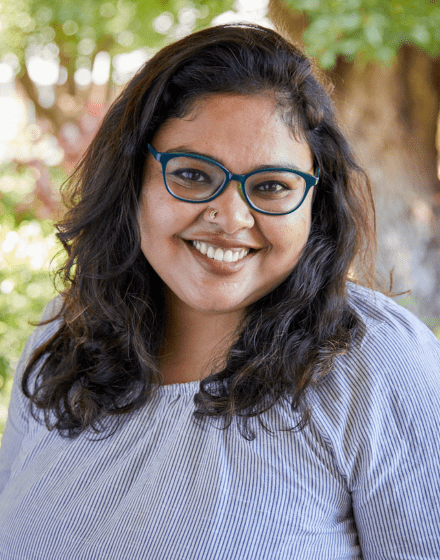You can search for courses, events, people, and anything else.
Women who are farmers in India are widely expected to work as free labourers on family farms. They rarely own the land and, in some cases, have no role in deciding how it is managed. Single women in rural communities must fend for themselves and will often work even when unwell just to make ends meet. A women’s collective in India, supported by research from Western Sydney University, is trying to change this.
In 2013, Bhavya Chitranshi, now a PhD student at the Institute for Culture and Society at Western, moved to Emaliguda in eastern India to immerse herself in the community of a Kondh Adivasi (Indigenous) tribe. The aim was to spend a year researching and designing a project to support sustainable development within the community. "As a young, single woman in an unfamiliar place, I felt most comfortable among women," she says. "We worked in the fields, spent time together cooking, bathing and completing chores, and as we shared our life stories, it became clear that being single here was a unique and challenging experience." Nearly one third of women in Emaliguda are unmarried, separated, or widowed, while others have husbands who do not provide much support. Chitranshi decided to explore what it was like to be a single adivasi woman and began holding open discussions with her new friends. "At first, everyone felt extremely vulnerable talking about the challenges of singleness," she says. "But slowly they began opening up as they saw value in, and derived strength from, sharing their lives with each other."
The group soon evolved into the Eka Nari Sanghathan, which means "single women’s collective". Together, the women rented some land and adopted a collaborative approach to agriculture, dividing labour by ability and sharing the produce equally. For Sanghathan member Mami Pedenti, it is a long-awaited opportunity for single women to be recognised and valued as farmers who are economically independent and self-sufficient. "We should not have to depend upon anyone for our basic needs," she says. "We deserve year-round food security and to live a healthy life. This is possible through eating healthily and farming sustainably. If we kill the planet today, what will our future generations live off?" she adds.
Need to know
- Western’s Bhavya Chitranshi, helped establish Eka Nari Sanghathan, a single women’s collective in India.
- The collective practises sustainable farming, using traditional techniques.
- They produce enough food for themselves and are able to sell the remainder.
Chitranshi organised a trip to a demonstration farm so the women could see that sustainable farming was viable. "We now cultivate our own seeds and make our own organic fertilisers, so we can grow healthy food while protecting the land, forests, soils and insects that keep the whole ecosystem alive," says Chitranshi. By adopting traditional, ecologically sensitive techniques, the Sanghathan is rejecting the industrialised, technology- and profit-based systems introduced by the Green Revolution, where farmers were encouraged to use chemical fertilisers and to plant high-yielding hybrid seed varieties and cash crops. "The adivasi farmland had been transformed from growing Indigenous pulses, millet and oilseeds, to growing major cash crops, like cotton and eucalyptus," explains Ashutosh Kumar from Groningen University in Netherlands, who works with Chitranshi on the project. "But Eka Nari Sanghathan is taking back the art of cultivation to produce food for self-consumption. They have already revived several Indigenous crops by selecting seeds that work harmoniously with nature." And this harmony defines the politics of the Sanghathan. "Many people doubted our approach, but now they are coming to us for advice," adds Chitranshi.
The collective now produces enough food for its own sustenance and sells the surplus, keeping the profits in a communal bank account to be shared collectively. In addition, the Sanghathan started saving additional money on a monthly basis to support group members who, if in need, are able to borrow money from the fund for agriculture, sustenance, and medical expenses. "So they’re not just depending on external funds and support," says Chitranshi.
"Before, people didn’t even know who the single women in our community were, but now they are starting to recognise our struggle," says Pedenti. "Whatever type of struggle people face, gender, class, or identity, we need different kinds of Sanghathans to transform these oppressions. Because together, people can work on any issue that’s important to them."
Chitranshi is now writing her PhD thesis based on almost a decade working with Eka Nari Sanghathan and is planning to make a film documenting the process. She found that being locked out of Australia for two years due to the COVID-19 travel ban, and limited access to the village while living in Odisha, gave her significant time to reflect on the work and her place in it. "I was about 20 minutes away from where the women lived, but I was not allowed to go to the village for most of that time due to lockdown," she recalls. "And it was really when I was locked inside that house alone that I realized how very important the work was for my own sense of self."
But at the same time, she believes her absence may have had positive benefits. For the first time, Chitranshi was unable to be present during the planning stage, and the women were anxious and frequently phoning her. "But when they did the whole process, without me physically being there, I think that gave the whole collective the confidence that they can do this themselves, even if I’m not there," she says. "It’s a more sustainable process — now, more than ever."
However, the process was made significantly more challenging during COVID-19 due to restrictions on mobility of seeds and other agricultural inputs. While it was risky at the time to get together to do farming collectively, the Sanghathan members realized it was important to produce food for themselves and for others in the village. "Because we had our collectively leased farmland, we were able to grow enough food during the pandemic," recalls Pedenti. "Elsewhere a lot of people were struggling, especially those who only produced cash crops. The market was down for a long time, and it was difficult to procure food from outside. In that time, most people in the village relied on local food crops and we were able to ensure food security for the Sanghathan members."
Next, Chitranshi would like to help Emaliguda establish a decent healthcare system, though she also appreciates what they have already achieved, both spiritually and politically (including securing single women a pension as well as securing government financial aid for building houses).
"It has been so inspiring to see how strong single women are when they come together," she says. "Working in a collective, you experience the beauty of relationships, female friendships and the value of sharing joy and love even when life gets difficult. It has definitely been a life-changing experience."
Meet the Academic | Bhavya Chitranshi
Bhavya Chitranshi is a PhD fellow at the Institute for Culture and Society. She has completed her Masters in Gender Studies and MPhil in Development Practice from Ambedkar University Delhi. She is the co-founder of an adivasi (Indigenous) single women's collective, Eka Nari Sanghathan, in Odisha, India. For the last 10 years, in close collaboration with the collective, she has been doing action research on issues related to singleness, gender, sustainable agriculture, socio-economic transformation and postcapitalist-feminist politics. Her PhD project, designed in collaboration with adivasi single women farmers from the Sanghathan, explores connections between Indigenous perspectives-knowledge-practices in sustainable agriculture and possible postcapitalist-feminist praxis in the decolonial context. In addition to her own PhD project, she has worked as a Research Assistant on 7 projects at the Institute for Culture and Society. These projects have been on diverse topics ranging from environmental issues, climate change and everyday sustainability practices, gender work, social media and social action, impact of Covid-19 on new mothers in Australia, Indigenous Geographers in Australia, and relationships between refugee migrants and Indigenous Peoples in Australia. Bhavya Chitranshi is skilled in qualitative research methodologies, including feminist, decolonial and action research-based methods. She also has extensive experience in working collaboratively with Industry Partners, Non-profit Organisations and people from marginalized communities, including women, Indigenous farmers, Linguistically and Culturally Diverse Communities and Refugee Migrants. She has published several book chapters, journal articles and project reports based on her work over the years. Bhavya has also taught courses on Action Research, Collective Action, Imprisonment in Australia and Digital Identities to undergraduate and Masters students in India and Australia. She is part of the Community Economies Research Network.
Credit
Future-Makers is published for Western Sydney University by Nature Research Custom Media, part of Springer Nature.
© Eka Nari Sanghathan






